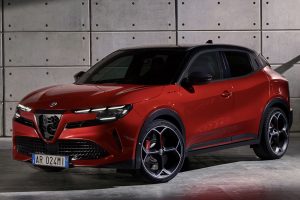Key Points
- 🌍 Tesla and various automakers aim to eliminate rare earth metals in future EV motors to reduce dependence on China.
- ⚙️ Tesla’s next-gen powertrain, announced during Investor Day, will feature a permanent magnet motor with zero rare earth metals.
- 🚗 Other automakers such as GM, Jaguar Land Rover, Nissan, and supplier BorgWarner are also working on low- or zero-rare earth material motors.
- 🔄 Nissan is developing magnet-free externally excited synchronous machine (EESM) motors to phase out rare earth metals.
- 🛠️ Drive System Design and BMW are among companies developing motors without rare earth metals, promoting sustainability and reducing environmental impact.
- 📉 Even automakers like Mercedes-Benz are significantly reducing rare earth content in upcoming EV designs.
Tesla and others are looking to end the use of rare earth metals in future electric vehicle (EV) motors, with U.S., European and Japanese automakers all considering the move to help reduce reliance on China.
During the company’s Investor Day event earlier this year, Tesla’s Vice President of Powertrain Engineering Colin Campbell announced that the company’s next-generation powertrain would include a permanent magnet motor with zero rare earth metals. Automakers including General Motors (GM), Jaguar Land Rover (JLR), Nissan and more, along with the supplier BorgWarner, are all developing, researching or have already created motors with low- or zero-rare earth materials, according to a recent report from Reuters.
Nissan has taken its attempts further than previously reported in the development of new magnet-free externally excited synchronous machine (EESM) motors, which utilize an electrical current to create a magnetic field. Eventually, the Japanese automaker plans to phase out the use of rare earth metals entirely through EESM development and the use of permanent magnet motors. Nissan also currently utilizes an EESM motor in the Ariya crossover.
“This is an important contribution to making us a little more independent of China,” said Otmar Scharrer, CTO of German supplier ZF.
ZF has created an EESM motor that Scharrer said offers similar performance and overall size to those in permanent magnet motors.
Currently, the processing and mining of the 17 minerals known as rare earth metals are dominated by China, and many have sounded the alarm on relying too heavily on the country — especially after the government announced a recent export ban of gallium and graphite, both of which are crucial for EV production.
There are also sustainability reasons to move away from the use of these minerals, along with those related to bolstering the home supply chains of individual markets. Other rare earth materials like neodymium and dysprosium require the use of solvents and generate toxic waste, opposing current environmental standards and goals.
Detroit-based company Drive System Design is working on motors free of rare earth metals with three different automakers, and the firm’s Director of Engineering Business Development, Ben Chiswick, also highlights the environmental benefits of the shift.
“If you get it right, you’ve got a much more sustainable product,” Chaswick said.
BMW has reportedly conducted several years of research into motors without rare earth materials.
“It was not a home run… but it works very well without rare earths,” said Uwe Deuke, BMW’s lead engineer for the EESM motor being developed for its next-generation vehicle.
Even automakers that aren’t phasing out rare earths entirely are reducing their content dramatically in upcoming EV designs. Mercedes-Benz, for example, will use almost no heavy rare earth materials in its next-generation EV, although it will still be a permanent magnet motor using a small amount of the minerals.





